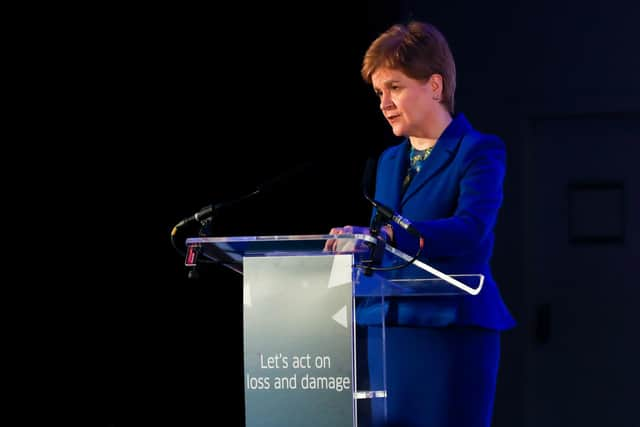COP27: What is climate reparation? The 'loss and damage' and payback time for the world’s richest nations?
The £2 million pledged may not have been a massive amount, but the funding marked a global first for an issue that has caused widespread discord during the past few United Nations COP summits. The announcement also prompted others to step up to the plate – Denmark and Wallonia, a region of Belgium, were quick to follow suit, saying they would also make contributions of around £13m between them.
Now loss and damage has made the agenda for the first time ever at a COP summit, as world leaders gather in Egypt for the 27th round of United Nations climate talks. However, countries have until 2024 to come up with a plan. And it’s likely to remain a divisive issue, pitching rich countries against poor.
Advertisement
Hide AdAdvertisement
Hide AdSo what is loss and damage and why is it so contentious? It refers to the cost of impacts already suffered as a consequence of climate change, including loss of land, homes, livelihoods and even culture. The richest nations are responsible for the vast majority of greenhouse gas emissions which have been released into the atmosphere to date, caused in the most part by massive-scale burning of fossil fuels, and so are considered culpable for the current level of global warming.
Meanwhile, developing countries are suffering the worst climate-related disasters and effects, including rising sea level and increasingly extreme weather events, which are causing large-scale humanitarian crises. The poorer nations have been calling for financial help for several years.
The issue will be a “litmus test” of the commitment of governments at COP27, according to United Nations secretary-general Antonio Guterres. Addressing world leaders at the official opening day of the talks in Sharm El-Sheikh, he said loss and damage could “no longer be swept under the rug”. Highlighting the inequality of environmental breakdown, Mr Guterres added: “Those who contributed least to the climate crisis are reaping the whirlwind sown by others. Many are blindsided by impacts for which they had no warning or means of preparation.”
Speaking in Egypt, ahead of a panel discussion on loss and damage on the second day of COP27, First Minister Nicola Sturgeon announced a further £5m funding from Scotland and urged other countries to follow suit.
A recent report from 55 vulnerable countries put the bill for their combined climate-linked losses over the past 20 years at about $525 billion – about a fifth of their collective GDP. Some estimates suggest such losses could reach $580bn a year by 2030.


The biggest polluters, including the US and the EU, have continued to side-step the issue, fearing spiralling claims and accusations of liability. The two blocked a proposal at last year’s COP26 to establish a fund, agreeing instead to a “dialogue” without a set target.
But the real-life impacts of climate change have been so devastating, as starkly illustrated by events such as deadly flooding in Pakistan this summer and widespread heatwaves, that countries have become more open to discussing it – though rejecting labelling as “compensation” or “reparations”.
Comments
Want to join the conversation? Please or to comment on this article.